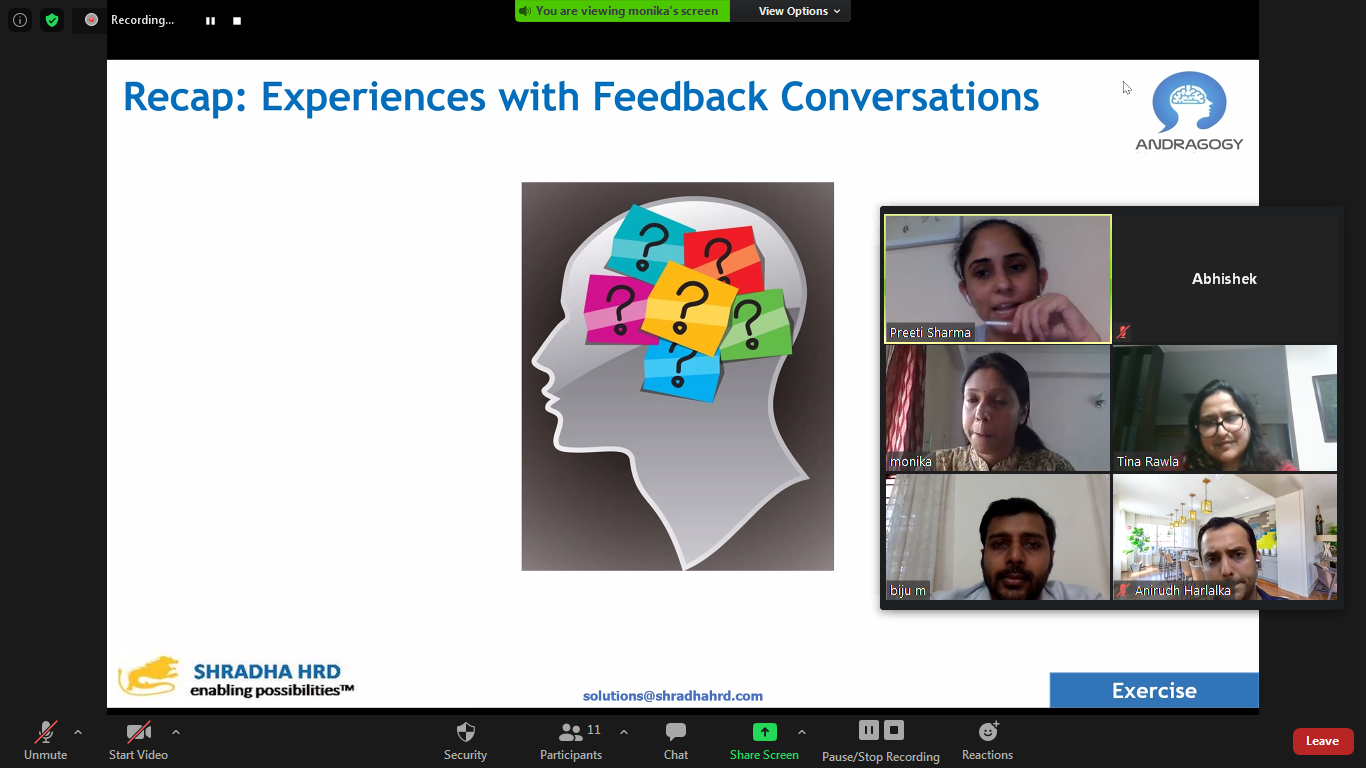Training landscape
While working virtually and being glued to our laptops, how many of us have missed conversations with our teams? Fun sessions where we could laugh and talk together?
And this is where our client, a global white goods manufacturing company, reached out to us to conduct an outbound, fun-filled, team building event – virtually!
The pandemic has changed the way we interact with our social and professional ecosystem. This program exemplified this change
Shradha HRD solution
We ran a session with several fun activities and leveraged different aspects of technology to fulfil the twin objectives of teams having fun and bonding together. Participants worked together in teams, collaborated, shared ideas, creatively expressed themselves, and were fully engaged in the process!
Our activities inspired experiential learning on the following themes:
- Ice-breaking and ‘getting to know you’
- Building rapport
- Team collaboration and interconnectedness
- Overcoming perceptions and biases
Program feedback
The feedback for the session came with a request for repeat sessions for another team!!!!! The participants agreed that they absolutely enjoyed interacting with their colleagues beyond all the work-related tasks and everyday stress. Even though its not exactly the same as an outbound event, it came a very close second
We had a super time putting this program together and facilitating it too.










